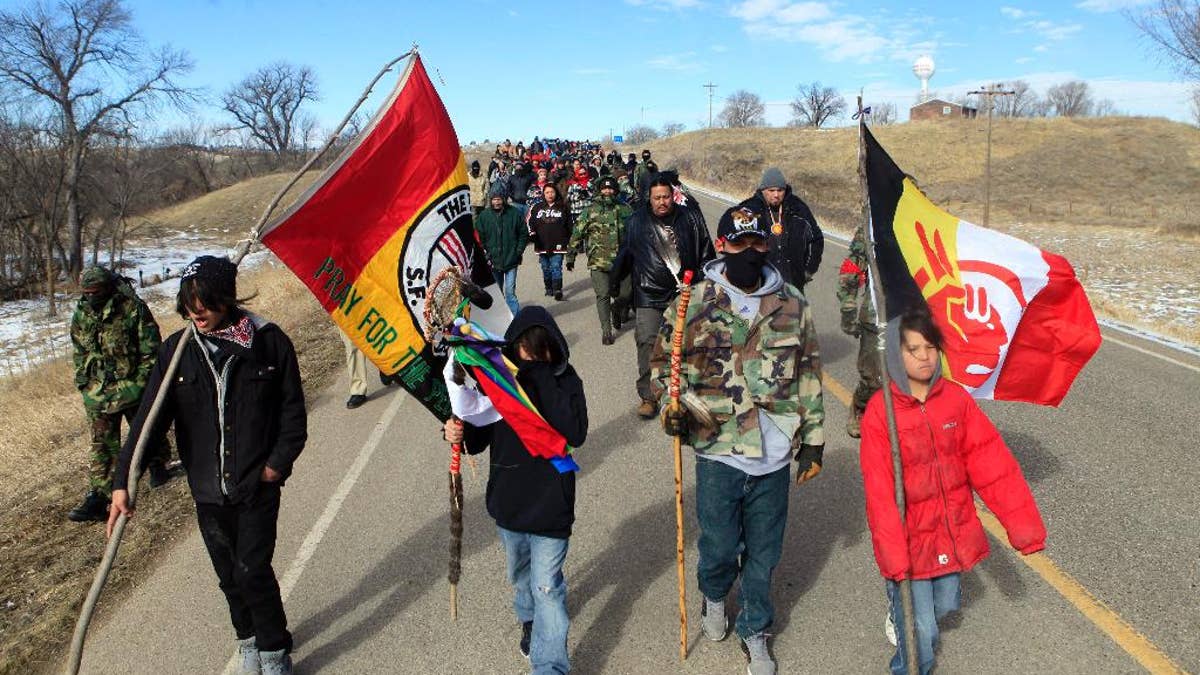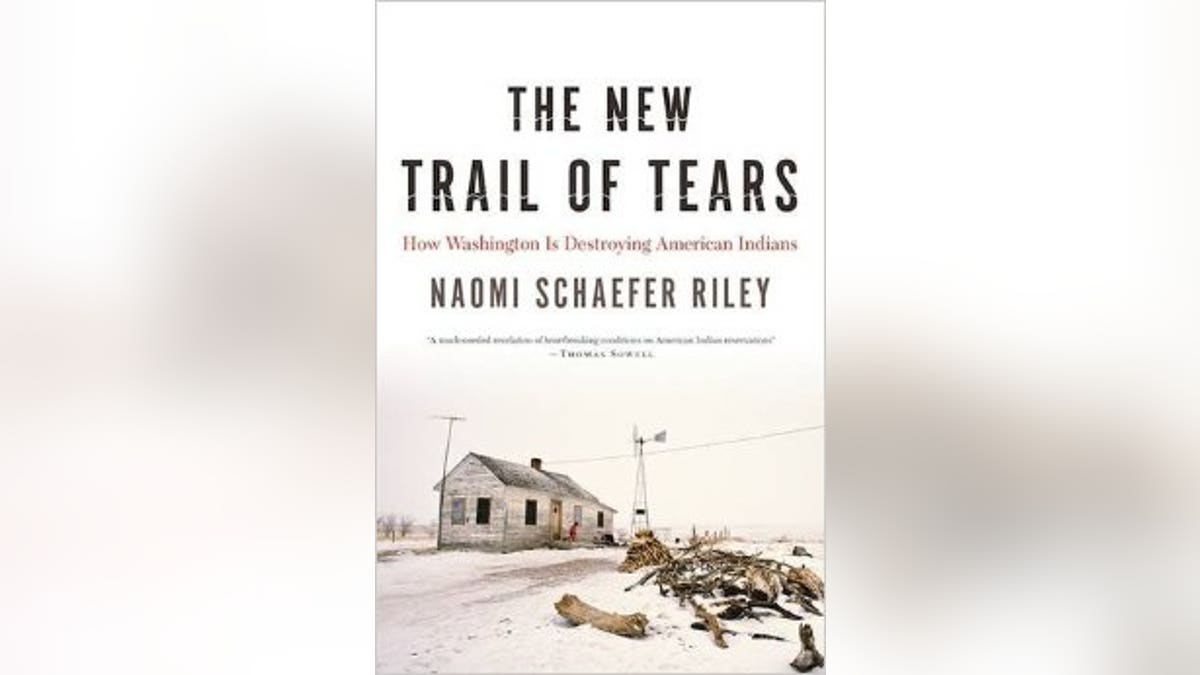
In this Feb. 27, 2014 photo, more than 100 people walk to Wounded Knee during the liberation anniversary of the famous massacre on the Pine Ridge Indian Reservation in South Dakota. Somewhere between 16,000 and 30,000 members of the Oglala Sioux Tribe live on the reservation which includes the county with the highest poverty rate in the U.S., and some of the worst rates of alcoholism and drug abuse, violence and unemployment. (AP Photo/Rapid City Journal, Chris Huber) (The Associated Press)
This week the city of Denver will become the 14th community in the country to recognize the second Monday of October—previously known only as Columbus Day—as a day to recognize the contributions of Native peoples to the United States. While Denver’s new holiday won’t supplant Columbus Day, the intention is clear. Celebrating explorers like Columbus Day is an insult to American Indians.
Indeed, each year, thousands of people gather across the country to protest Columbus Day, accusing the explorer of launching a genocide.
Columbus Day is one of the least celebrated federal holidays in America, according to the Pew Research Center. No one wants to recognize a holiday that has come to be associated with such conflict and controversy.
Glenn Morris, a professor at the University of Colorado, has been leading his state’s protest against the holiday. He explains that Columbus Day is a “hegemonic tool. . . . And it exists in part to advance a national ideology of celebrating invasion, conquest and colonialism.”
Whether or not you agree, you might wonder just how the campaign to do away with Columbus Day is going to help the average American Indian. The two million Indians in this country are the poorest racial group. They have higher rates of gang violence than blacks or Hispanics. Indian women are raped at 2.5 times the national average. Indian children are abused at twice the national average. And suicide is the leading cause of death for American Indian boys aged 10-14.

The Denver City Council proposal says that the “systemic destruction of Indigenous Peoples” by white explorers and settlers resulted in “high poverty rates (and) disparities in education, health and socioeconomic status” in Native American communities.
Columbus and his descendants no doubt did plenty to destroy the lives of Native Americans. But the reason that American Indians are where they are today is not because of events that occurred 500 years ago or even a century ago. It is because of policies perpetrated in Washington today.
Columbus and his descendants no doubt did plenty to destroy the lives of Native Americans. But the reason that American Indians are where they are today is not because of events that occurred 500 years ago or even a century ago. It is because of policies perpetrated in Washington today.
American Indians are poor because people who live on reservation don’t have property rights. Their land is held in trust by the federal government—which means they cannot buy it or sell it or develop it as they wish. They can’t even get a mortgage to buy a home, which is why reservations that have hundreds of millions of acres also have housing shortages and why people are stuffed into overcrowded trailers.
Indian reservations contain almost 30 percent of the nation’s coal reserves west of the Mississippi, 50 percent of potential uranium reserves, and 20 percent of known oil and gas reserves. Those resources are estimated to be worth nearly $1.5 trillion. But the vast majority of Indian lands with natural resources remain undeveloped because of federal regulations.
In fact, just about every aspect of the lives of people on reservations is micromanaged by the 9,000 employees at the Bureau of Indian Affairs.
American Indians experience disparities in education because they have among the lowest-performing and most violent public schools in the country. Some of the schools are mismanaged by Washington—even the roofs of the buildings are caving in--and others are mismanaged by corrupt tribal officials who give teaching jobs to relatives whether or not they’re qualified. To add insult to injury, they fire qualified young men and women from Teach for America because they’re “too white.”
There is disparity in health outcomes among Indians because Indian Health Services might be the last place in the country anyone would want to be treated by a doctor. They had a 2015 budget of over $4.6 billion. And yet, there are widespread and documented reports of nurses being unable to administer basic drugs, of broken resuscitation equipment, and of unsanitary medical facilities.
Many well-meaning Native and non-Native leaders are convinced that what Indians need to succeed is to have their cultures celebrated, to have their voices heard, to have their wounds healed with political protest. But decades of righteous indignation have proved fruitless.
Maybe it’s time we try something else. If we want to really honor indigenous people, we would give them the same rights and freedoms that every other American citizen enjoys. They’ve waited long enough.








































